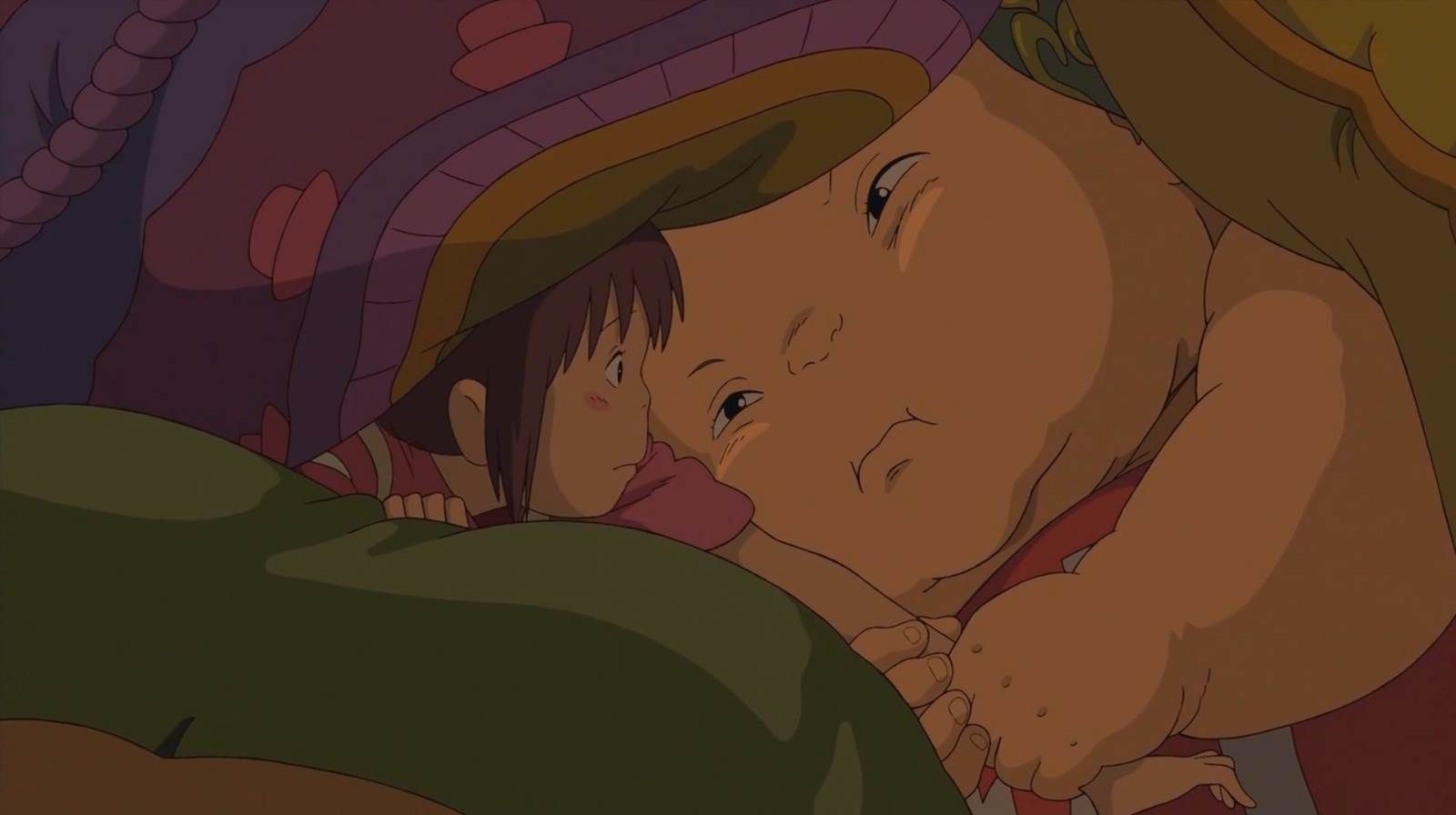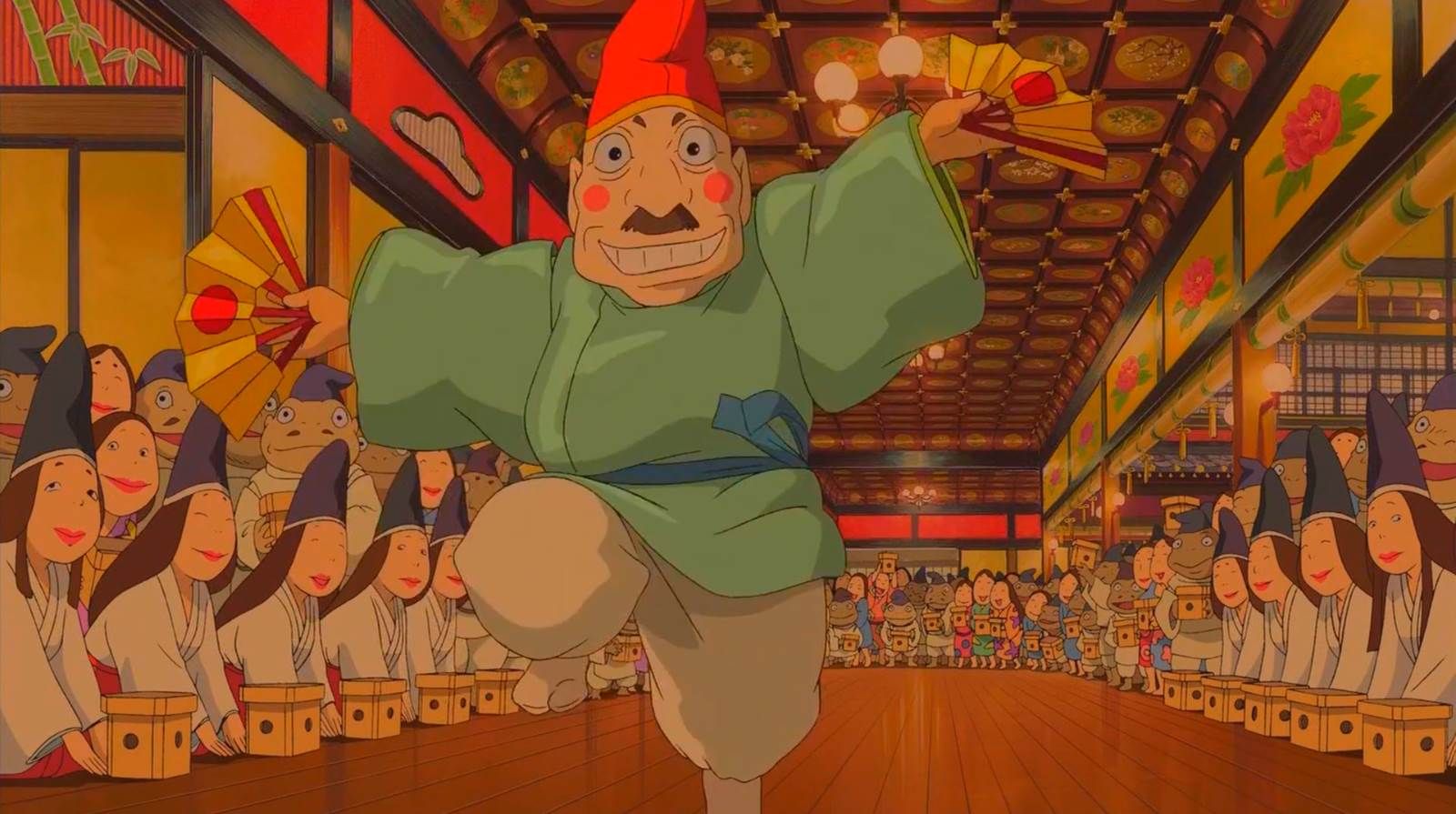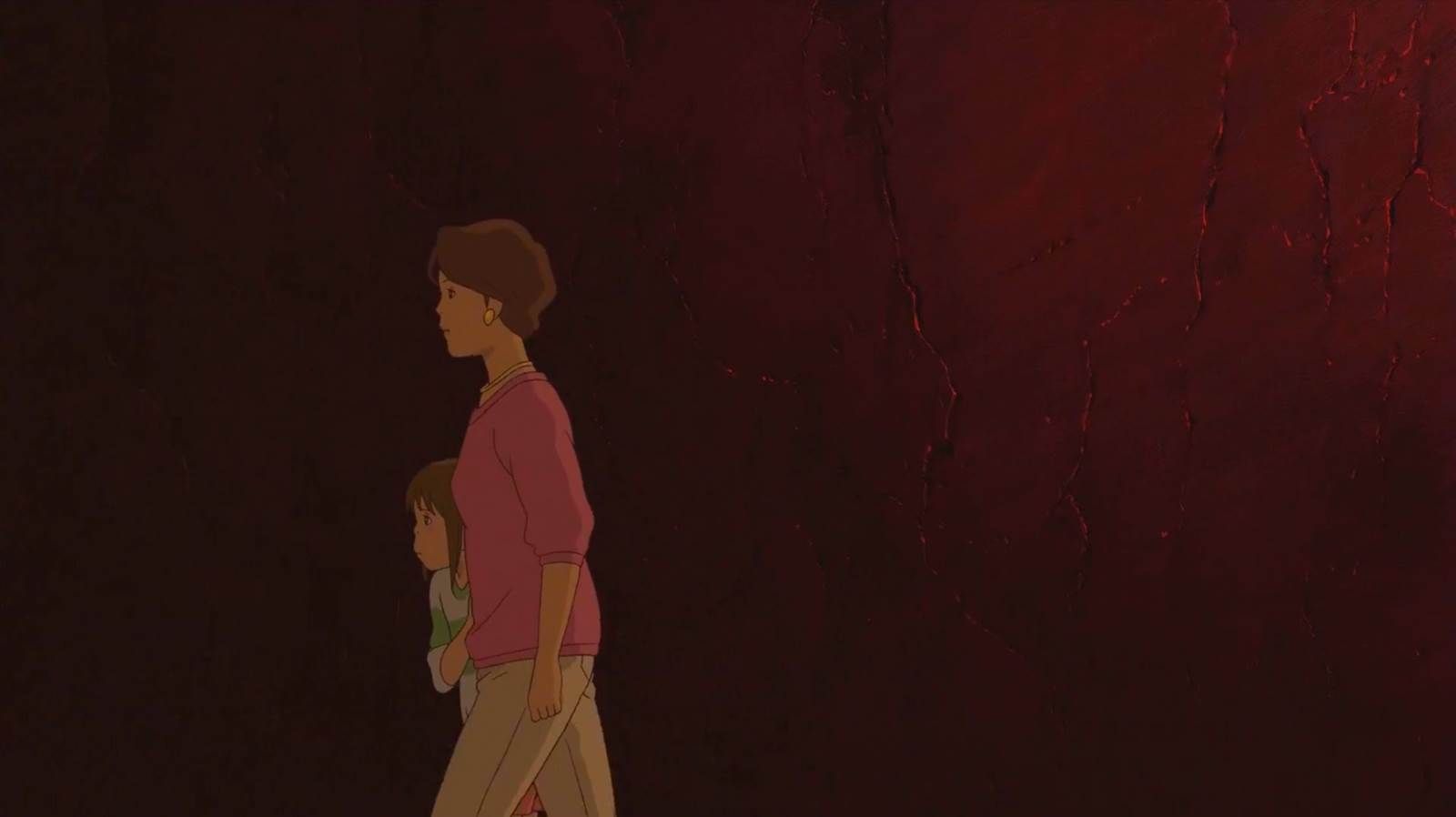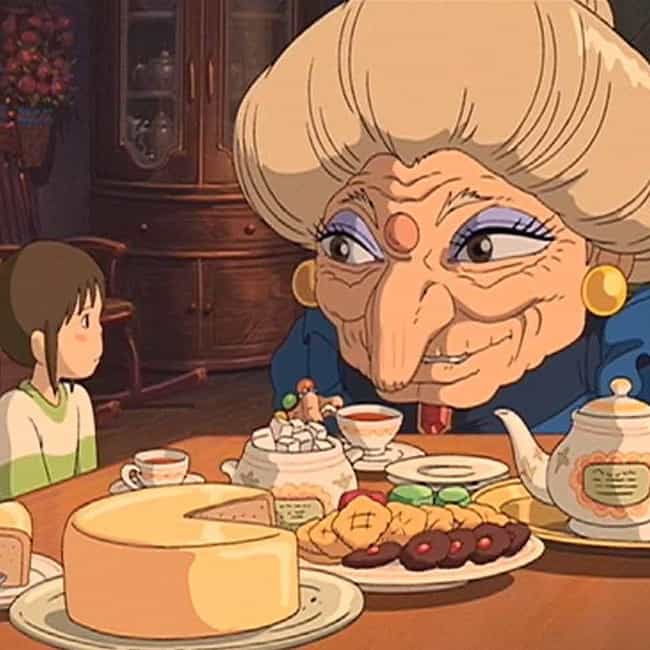I first watched Spirited Away when I was of Chihiro’s age about 10 years ago. My impression of it was nothing more than a fascinating story. But rewatching the animation yesterday had given me completely new perspectives and prompted me to reevaluate this animation.
I consider this animation a poignant Japanese coming-of-age story. Seeing Chihiro’s struggle to escape out of this unreal world and listening to the piano background music by Joe Hisaishi was full of bitterness. Overall, the plot of a 10-year-old girl, Chihiro, abandoning her childhood and growing up to face the reality in one day conveys to the audience some important coming-to-age messages.
Chihiro has to overcome the challenge of remembering her name at the bathhouse. Haku says to Chihiro in the beginning, “If she steals your name, you’ll never find your way home. I no longer remember mine. But it’s strange. I remembered yours.” Yubaba controls people by taking away their names, which are a symbolism of identity and childhood. In our real world, it is a struggle to maintain our identity too. Time is a one-way trip. Once you enter the adulthood or the next phase of your life, there is just no going back. That’s probably a major reason behind Haku’s warning to Chihiro at the very end in front of the tunnel. She said, “now go and don’t look back.” The world of spirits and the world of humans are distinct, just like our childhood and adulthood. Chihiro wants to escape the bathhouse at the beginning, but at the time of separation, leaving becomes a hard decision. Everything so close will become something so distant and out of reach — much like our fading memory of youth. When entering the tunnel for the first time, Chihiro’s mom says to her, “don’t cling like that, you’ll make me trip,” which is echoed by the exact same sentence as they are exiting the tunnel at the end. The first one is talking to a naughty kid, but the second one is more like talking to a much more mature teenager. Having to explore the world on her own turns Chihiro into a much more independent and sensitive individual.
Another coming-of-age aspect that I want to point out is the message regarding kindness. The film portrays greed as a bad human nature. Most employees at that the bathhouse are greedy — most evident by the frog’s desire for gold upon meeting No Face. Those greedy individuals were swallowed by No Face, and even Chihiro parents’ greed for food was punished by the metamorphosis into pigs. In contrast, Chihiro is kind. She is not lured by gold or food, she repays others’ kindness, and she values friendship. She chooses to save her parent amid impending danger and decides without any second thought to save Haku. The film chooses to reward Chihiro’s kindness with a happy ending, and Chihiro leaves the bathhouse as an upright person.
I wish I can say more about this film’s heavy influence by the Japanese Shinto religion and the period (economically and culturally), also Japanese cultural symbols such as the bathhouse, but I’ll leave that for other viewers of the film to consider due to the length of this post.
At last, I want to say to those who have only watched Spirited Away when they were a kid, “watch it again!” This animation’s depth of theme was far beyond what I thought.
I’d like to end this post with some excellent quotes from the animation thanks to My Anime List and Ranker.
“Play with me or I’ll break your arm.” – Boh

“Welcome the rich man, he’s hard for you to miss. His butt keeps getting bigger, so there’s plenty there to kiss!” – Aniyaku

“Chihiro, don’t cling like that, you’ll make me trip.” – Yuko Ogino



Your discussion of the film’s portrayal of the passage of time and youth was really well thought out! Just to add to the part where you mention the significance of names, Haku regains his memories when Chihiro tells him his true name, further emphasizing the importance of memory for one’s own sense of identity. Identities are shaped in part by memories and experiences, and when memories are taken away, one’s sense of self changes. I also noticed that Haku’s personality changes toward the beginning of the film when Chihiro enters the bathhouse. Perhaps this sudden change is due to the loss of his name to Yubaba, who has control over him and his identity.